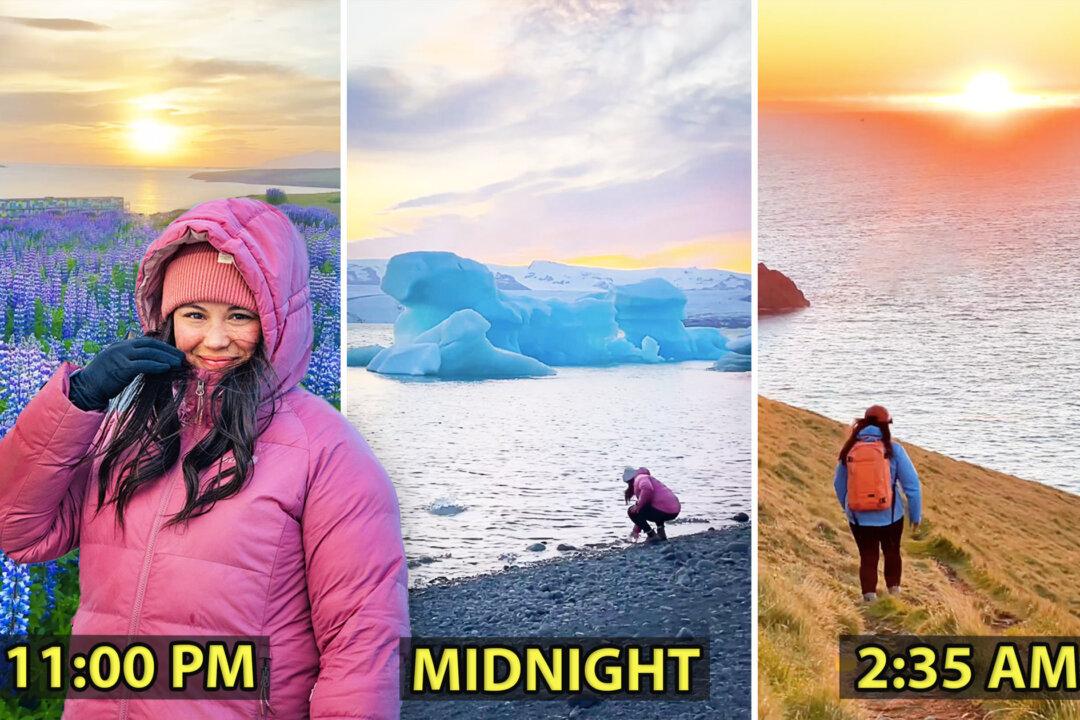A United States native who emigrated to Iceland is sharing the unique experience of the midnight sun in a country where daylight reigns for 24 hours during the summer.
Full-time content creator Kyana Sue Powers quit her job in college athletics in Boston and moved to Reykjavik, Iceland, in 2019 after falling in love with the country on vacation the previous year. Over four years, she has grown used to the sun never fully setting between mid-May and the end of August, regulating her body clock, 2 a.m. glacier hikes, and sleeping when the sun is out.





